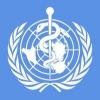On 14 November is the official World Diabetes Day. In a world of 7 billion people where the clinical picture is changing, is the commemoration of this day more important than ever, says lecturer Siri Tellier from the Copenhagen School of Global Health at the University of Copenhagen. - Our new world citizen number 7 billion is likely to grow up in a big city. It increases the risk of living conditions such as diabetes, COPD, cancer and heart disease, says Siri Tellier, who teaches demography and health. She holds among other courses in Beijing on international perspectives on demographic challenges.
One billion people now live in the big city slums
World citizen number 7 billion, according to calculations was born on October 31, will face completely different diseases than children born just a few decades ago. While the urban population continues to grow, change, global health challenges rapidly. - Until 2008, they lived most of the world's people in the country, but after the live most of the cities. The largest population growth occurring in developing country cities, and a third of them, a little over one billion, live in the big city slums, says Siri Tellier. A large part of the people who move to cities, they are young adults, and it has several implications for public health. Among other things, because young people leave their parents in rural areas. - Aging parents can no longer count on help from their adult children. The old often live with chronic non-communicable diseases like diabetes and needs daily assistance. It is more than just a question that young people send their parents money from their new home in the cities - who should take care of the old everyday? Households are shrinking; Rentals are perhaps only five, and in the cities often only two. So to meet this new challenge requires developing new methods to take care of the old, says Siri Tellier.
Poor health affects generations
In the world's great cities are health challenge twofold: First of all, the living conditions in the slums poor, both in terms of water, sanitation and access to health care. At the same time urban life a shift towards a 'modern' lifestyle, poor nutrition, especially very salty, fade foods, smoking. alcohol and lack of exercise - all reason for living conditions diseases. Second, it affects the young nytilflytteres poor health also their children's risk of living conditions diseases when they become parents. - An increasing number of studies show that healthy aging begins in the womb. If children for example are born with low birth weight, increases their risk of developing diabetes later in life, says Siri Tellier. - Our new world citizen number 7 billion growing up safely in a large city, and meetings are a number of factors that increase the risk for diabetes and COPD, cancer and heart disease. Furthermore, there is increased focus on that even healthy young people develop a lifestyle that keeps them healthy throughout life. Parents can for example have a hard time getting used their teens from unhealthy habits, which may not affect health later, says Siri Tellier.
And the good news
- The risk that our new citizen of the world die from measles or HIV / AIDS or diarrheal diseases are very small. We have reduced child mortality from 12 million a year in 1990 to less than 8 million today and this is mainly done through preventions as vaccines against infectious diseases. It is not only good news, that's fantastic news, says Siri Tellier. Flemming Konradsen looking Copenhagen School of Global Health at the University of Copenhagen, share the optimistic holding, and stresses the need to take lives diseases as severe as the infectious: - Globally, many countries have reduced the big killers such as malaria. The same targeted efforts should be done to the living conditions of diseases, which is a huge challenge. There must be prevented now and not defer examination. Besides the human consequences are the economic costs of these diseases is already so huge that we risk the brakes countries' development, says Flemming Konradsen.
Source: KU 


